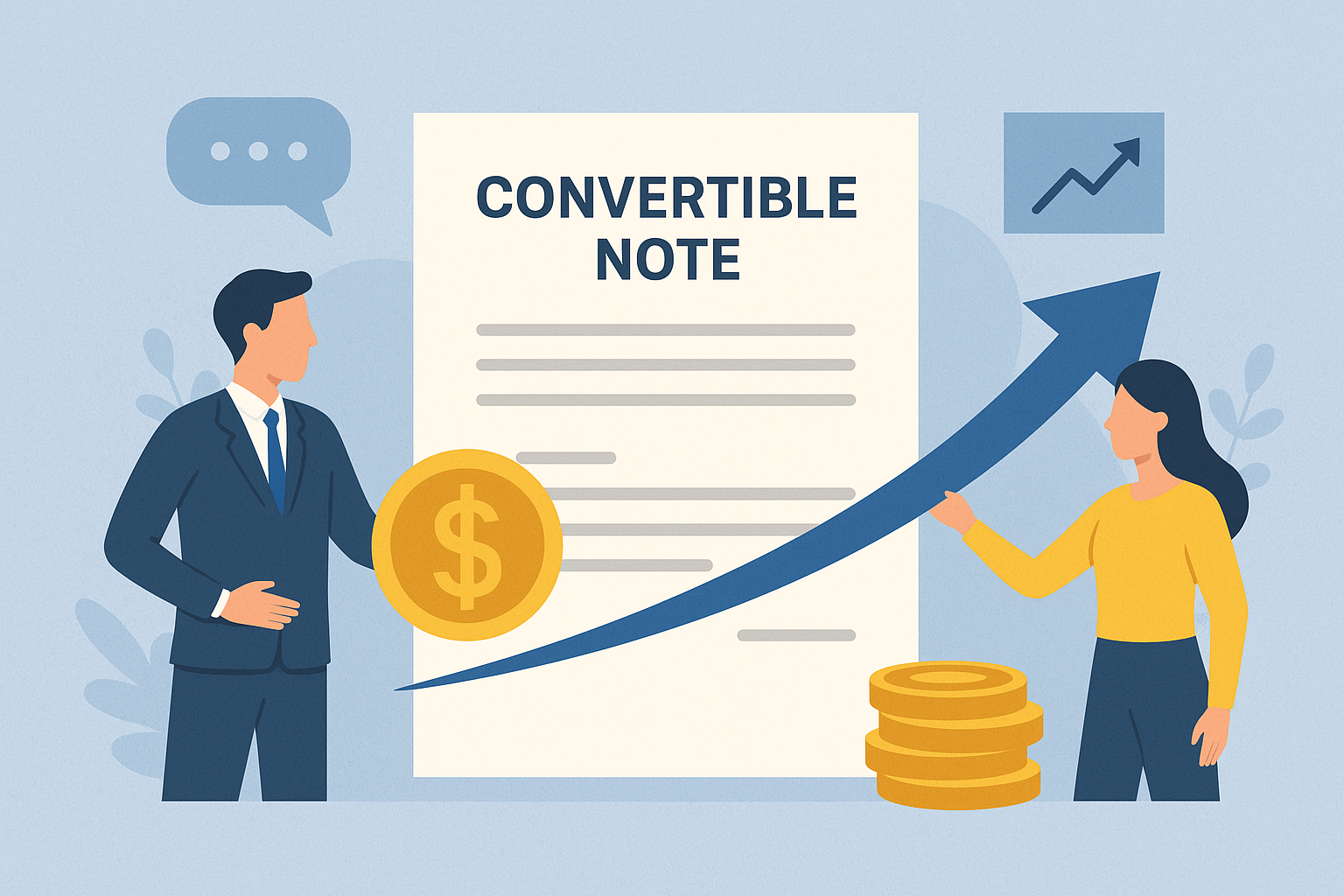
When startups raise their earliest rounds of capital, one of the most practical instruments they turn to is a Convertible Note (CN).
Think of it like this:
An investor provides capital to a startup, but instead of taking equity immediately, they receive a promise that their investment will later convert into equity (usually at a discount) when the startup raises its next significant funding round.
This makes CNs a smart choice for early-stage deals, especially when setting a valuation feels premature.
How Convertible Notes Work
Here’s the step-by-step:
- Investor funds the startup → No immediate equity is issued.
- Terms are agreed upfront → These may include a discount rate (say 20%) or a valuation cap.
- Conversion or repayment → At the next funding round, the note converts into equity under those terms. If no round happens, the CN must convert or be repaid within a fixed maturity period.
Convertible Notes in India (2025 Regulations)
Here’s what you need to know if you’re operating in India:
- Minimum Investment: ₹25 lakh in a single tranche.
- Eligible Startups: Only startups recognized by the DPIIT (Department for Promotion of Industry and Internal Trade).
- Maturity Period: Must be converted or repaid within 10 years (earlier the limit was 5 years).
- Foreign Investors: CNs issued to non-residents must follow FEMA pricing guidelines and reporting requirements. Filing via an authorized dealer bank is mandatory within 30 days.
- Exemption from Deposits: CNs that meet these conditions are not classified as “deposits” under the Companies Act.
- Tax & SEBI Compliance: Convertible notes are treated as debt until conversion, offering tax advantages, while SEBI now requires structured compliance similar to other funding instruments.
Example: Aiswarya’s Investment in Waky
- Investor: Aiswarya
- Startup: Waky (seed-stage, DPIIT-approved)
- Investment: ₹25 lakh (July 2024)
- Terms: CN converts into equity at a 20% discount during the next round
Fast forward to July 2025: Waky raises ₹2 crore at ₹10,000 per share.
- At market price: Anirudh would have received 250 shares (₹25,00,000 ÷ ₹10,000).
- With CN discount: He converts at ₹8,000 per share → 313 shares.
That’s 63 additional shares—his reward for backing early.
Why it works for the investor:
- Gets equity at a lower price.
- Has priority over equity holders if the company fails.
Why it works for the startup:
- No immediate dilution when valuation is unclear.
- No cash outflow—capital converts into equity instead.
CNs vs. CCDs: The Key Difference
- Convertible Notes (CNs): Do not require a valuation certificate for issuance.
- Compulsorily Convertible Debentures (CCDs): Require a valuation certificate before being issued.
That’s why CNs are often preferred in early or bridge rounds, when founders and investors want speed and flexibility.
The Bottom Line
Convertible Notes bridge the gap between a founder’s need for early capital and an investor’s need for protection and upside. With India’s updated 2025 regulations, CNs are now a mainstream, compliant, and flexible way to structure early-stage deals.
For founders, they delay valuation discussions to the right time. For investors, they provide discounts, protection, and the chance to get in early on the next big story.






.png)



.png)

.png)

.png)
.png)
.png)
